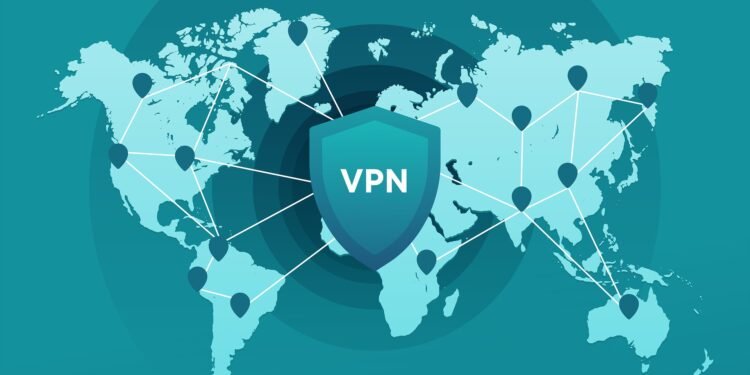Virtual Private Networks (VPNs) offer a suite of security benefits critical in today’s digital landscape, where online threats loom large over individuals and organizations alike.
At the core, VPNs secure network connections, making transmitted data anonymous and encrypted, a necessity. This encryption shields sensitive information from potential interceptors, turning personal and business communications into indecipherable text to unauthorized viewers. VPNs also play a pivotal role in evading data throttling and bandwidth limitations imposed by Internet Service Providers (ISPs), ensuring consistent internet speed and access to necessary resources without unjust restrictions.

Furthermore, they provide a solution to geographic limitations and censorship by masking the user’s IP address, offering an invaluable tool for accessing geo-blocked services and content. VPN is not just a privacy tool, but a multifaceted shield against a variety of online vulnerabilities, making them indispensable in maintaining online security and freedom.
Enhanced Network Security
At the heart of VPN benefits is the bolstering of network security. VPNs create a secure and encrypted tunnel for data transmission, effectively shielding your online activities from prying eyes. This encryption is pivotal in preventing unauthorized access to sensitive information, such as personal data and business communications. VPNs can secure your network by preventing software and browsers from accessing your connection, ensuring that your online presence remains secure and anonymous.
Guarding Personal Information
One of the paramount concerns in today’s digital age is the protection of personal information. VPNs excel in hiding your private details from potential cyber threats. By masking IP addresses and utilizing robust encryption techniques, VPNs ensure that even if data is intercepted, it remains unintelligible to hackers. This level of security is crucial in safeguarding identities, passwords, and financial information against cybercriminals.
Bypassing Data and Bandwidth Throttling
Internet users often face throttling from ISPs, a practice that limits bandwidth or slows down internet speed after reaching certain data usage. By hiding the amount of data used from ISPs, VPNs prevent the implementation of data caps, ensuring uninterrupted and speedier internet access. This benefit is especially valuable for businesses that rely on constant, high-speed internet for operations and remote workers accessing the network from different locations.
Access to Geo-restricted Content
In an increasingly connected world, access to information and services across geographic boundaries is essential. VPNs facilitate this by allowing users to bypass geo-restrictions and censorship. By providing users with an alternative IP address, VPNs enable access to content and services that are otherwise restricted based on location. This feature is indispensable for individuals in censored regions and businesses requiring access to global resources.
Cost-Effective Network Expansion
For businesses, expanding network access to accommodate growth can be a costly endeavor. VPNs offer an economical solution by enabling secure remote access to an extensive number of employees and resources. VPNs allow for the scaling of network capabilities without the prohibitive expenses traditionally associated with network expansion, making it an attractive option for growing enterprises.
The Verdict
VPNs stand out as an essential tool in the cybersecurity arsenal, offering unmatched benefits that extend beyond mere privacy enhancement. From securing networks and protecting sensitive information to bypassing internet throttling and accessing geo-blocked content, VPNs provide a comprehensive solution to a wide array of digital security challenges. As digital threats continue to evolve, the adoption of VPN technology becomes not just a recommendation but a necessity for safeguarding one’s digital footprint.








